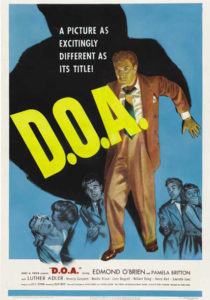I decided to see Jurassic World: Fallen Kingdombefore it vanished from theaters.
That was a mistake.
Spoilers ahead.
Hands down this was the worst of the Jurassic Parkfranchise. The movie fails at the script level and crumbles further from there. The story opens several years after the disastrous events of Jurassic World. A team has come to the island, now in ruins, to get a sample from the magical dinosaur from the last movie. Despite being on an  island full of voracious always hungry carnivores characters character work alone in the dark and when in the water don’t even use simple ‘fish finders’, you know Hooper had one in Jaws so it’s not unheard of technology, to warn them of approaching massive wildlife. This level of character idiocy permeates the entire script from front to back.
island full of voracious always hungry carnivores characters character work alone in the dark and when in the water don’t even use simple ‘fish finders’, you know Hooper had one in Jaws so it’s not unheard of technology, to warn them of approaching massive wildlife. This level of character idiocy permeates the entire script from front to back.
The plot of the film is that the island containing the park is soon going to be destroyed by a volcanic eruption, killing all the dinosaurs. The U.S. government, despite having no sovereignty over an island near Costa Rica decides to do nothing and that means no one is going to do anything and even just going there is illegal. (Don’t think too hard about it; even the movie ignores this stupidity after mentioning it.) Luckily as Claire (Bryce Dallas Howard) is giving up on saving the animals, Lockwood, Hammond’s silent partner, so silent he was not even mentioned in any other film, is willing to fund a rescue out of pure and noble concern. (To quote Wash from Firefly“Curse your suddenly and inevitable betrayal.”) Claire is forced to reunite with Owen (Chris Pratt) from the last film, their Happily Ever After ending in Jurassic World having been derailed because he didn’t let her drive the van. Gathering up a couple of NPCs with vital and specialized skills, they fly to the island to rescue ‘Blue’, the super solider variant of velociraptor. A rescue op is already underway on the island but they needed Claire handprint to unlock the abandoned computers network and Owen to track Blue. Once this is achieved the rescue team is revealed as bad guys doing this to sell the dinosaurs to weapon and drug manufacturers. (Because in this world nothing is more evil than capitalism, weapons, and making pharmaceuticals. Remember the villainous corporate backed storm chasers in Twister?) Leaving our heroes and one NPC on the island to die, the villains load up their ships with dinosaurs and the NPC veterinarian to save the wounded blue. Heroes being heroes they escape certain death and get surreptitiously stow away on the bad guy’s ship by jumping a full sized truck from the dock to the departing vessel. (I’m not joking, apparently no aboard noticed a several ton truck jumping into the well-deck.)
There was nothing about this movie to hold my attention. Throughout the run time I was bored and never engaged with plot, story, or character. Luckily I used one of my three free movies per week to see this so I was out no additional funds.
I fully expect The Meg to be better, make of that what you will.



